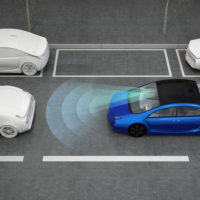Few Checks on the Safety of Driverless Cars

Driving cars is an image centrally associated with being American, but as technology advances, the direct interaction between car and driver seems to be shrinking. Car accidents are unavoidably connected with driving a car since people are unpredictable and prone to making mistakes. Some of this inherent danger is supposed to be addressed with new cars that remove the human element by featuring autopilot options or even a completely driverless experience. It appears the future of traveling in cars is turning toward a wholly passenger-based experience. While this new technology does offer occupants flexibility and freedom from concentrating on piloting the vehicle, these cars are still in the early stages of development, meaning glitches and kinks in the design and function will be continuing issues. Being one of the first try this new technology can be exciting and noteworthy, but based on past accidents involving these new vehicles, including some that had fatalities, due to problems with the operating programs, caution may be called for until the safety of the technology is more proven. Ensuring cars are safe is in large part due to government regulation of the design and safety features car manufacturers use in their vehicles, but such oversight is not being applied to the latest car technology, which leaves consumers with fewer sources of assurance and information about a car’s overall safety. A discussion of the federal government’s latest policy on driverless vehicles, and how this could impact people injured in accidents involving a driverless car, will follow below.
Federal Policy
Starting under the Obama administration, compliance with policy issued by the federal government, through the Department of Transportation, on the safety of semi- or completely- autonomous vehicles was voluntary, reflecting a hands-off policy that greatly differed from the approach applied to standard vehicles. As originally conceived, the voluntary guidance consisted of a safety checklist that discussed issues related to crashworthiness, responding to hazards, and where the cars are intended to be driven. The latest revision of the driverless car policy removes provisions related to privacy and ethics, and leaves it to car companies to report safety issues to the public. This means driverless car manufacturers do not have to prove the cars can detect objects and people on the side of the road or that the cars function as intended and include fail-safe features. In fact, the Trump administration specifically told States not to use this document as a starting off point to regulating the industry. Congress is working on addressing some of the safety oversight concerns, and the House currently has a bill under consideration that would require manufacturers pass safety assessment certifications within two years.
Potential Impact to Injured Victims
In order to operate a vehicle as safely as possible, it must work as it is purported to operate. Without required safety compliance standards, consumers have no reasonable way to know if driverless cars actually meet the claims of manufacturers, which puts them, and more importantly, other drivers on the road, at a potentially higher risk for an accident. Further, because disclosures to the public are voluntary, it will be harder to prove a manufacturer is liable for an accident if a vehicle malfunction caused a crash, which hurts all consumers in the long run. Anyone injured in a car accident should consult a personal injury attorney about the potential of taking legal action on his/her claim so the responsibility for harm is placed with the right party.
Get Help
Being injured in a car accident can alter your life forever. Make sure the responsible party is held accountable by working with an experienced personal injury attorney to bring your claim. The Miami law firm of Pita Weber Del Prado understands the gravity of car accident injuries, and knows how to build a case that gives you the best chance at winning. Contact us today for a free consultation.
Resources:
nhtsa.gov/sites/nhtsa.dot.gov/files/documents/13069a-ads2.0_090617_v9a_tag.pdf
thehill.com/policy/transportation/344141-driverless-car-bill-speeds-through-house



